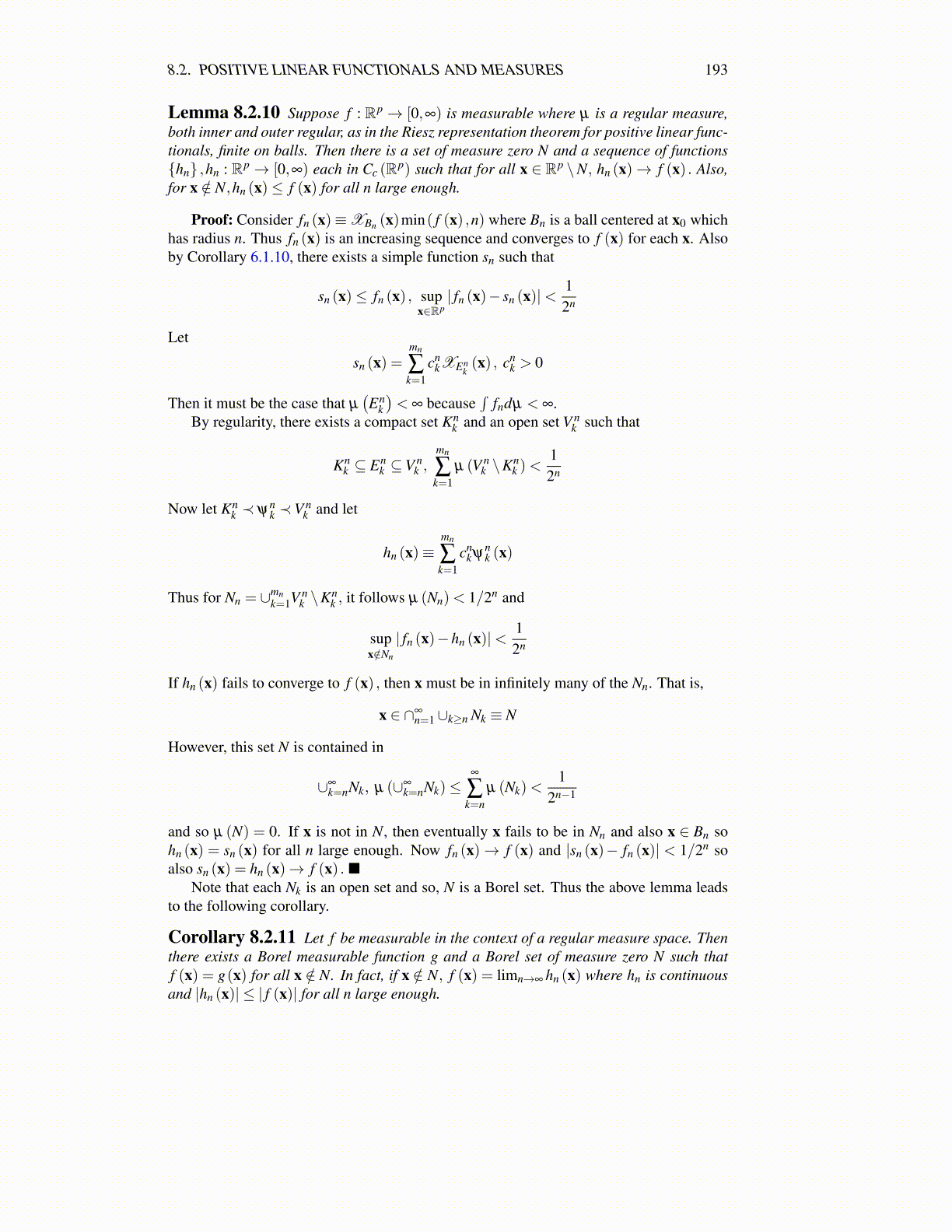
8.2. POSITIVE LINEAR FUNCTIONALS AND MEASURES 193
Lemma 8.2.10 Suppose f : Rp → [0,∞) is measurable where µ is a regular measure,both inner and outer regular, as in the Riesz representation theorem for positive linear func-tionals, finite on balls. Then there is a set of measure zero N and a sequence of functions{hn} ,hn : Rp→ [0,∞) each in Cc (Rp) such that for all x ∈ Rp \N, hn (x)→ f (x) . Also,for x /∈ N,hn (x)≤ f (x) for all n large enough.
Proof: Consider fn (x)≡XBn (x)min( f (x) ,n) where Bn is a ball centered at x0 whichhas radius n. Thus fn (x) is an increasing sequence and converges to f (x) for each x. Alsoby Corollary 6.1.10, there exists a simple function sn such that
sn (x)≤ fn (x) , supx∈Rp| fn (x)− sn (x)|<
12n
Let
sn (x) =mn
∑k=1
cnkXEn
k(x) , cn
k > 0
Then it must be the case that µ(En
k
)< ∞ because
∫fndµ < ∞.
By regularity, there exists a compact set Knk and an open set V n
k such that
Knk ⊆ En
k ⊆V nk ,
mn
∑k=1
µ (V nk \Kn
k )<12n
Now let Knk ≺ ψn
k ≺V nk and let
hn (x)≡mn
∑k=1
cnkψ
nk (x)
Thus for Nn = ∪mnk=1V n
k \Knk , it follows µ (Nn)< 1/2n and
supx/∈Nn
| fn (x)−hn (x)|<12n
If hn (x) fails to converge to f (x) , then x must be in infinitely many of the Nn. That is,
x ∈ ∩∞n=1∪k≥n Nk ≡ N
However, this set N is contained in
∪∞k=nNk, µ (∪∞
k=nNk)≤∞
∑k=n
µ (Nk)<1
2n−1
and so µ (N) = 0. If x is not in N, then eventually x fails to be in Nn and also x ∈ Bn sohn (x) = sn (x) for all n large enough. Now fn (x)→ f (x) and |sn (x)− fn (x)| < 1/2n soalso sn (x) = hn (x)→ f (x) . ■
Note that each Nk is an open set and so, N is a Borel set. Thus the above lemma leadsto the following corollary.
Corollary 8.2.11 Let f be measurable in the context of a regular measure space. Thenthere exists a Borel measurable function g and a Borel set of measure zero N such thatf (x) = g(x) for all x /∈ N. In fact, if x /∈ N, f (x) = limn→∞ hn (x) where hn is continuousand |hn (x)| ≤ | f (x)| for all n large enough.